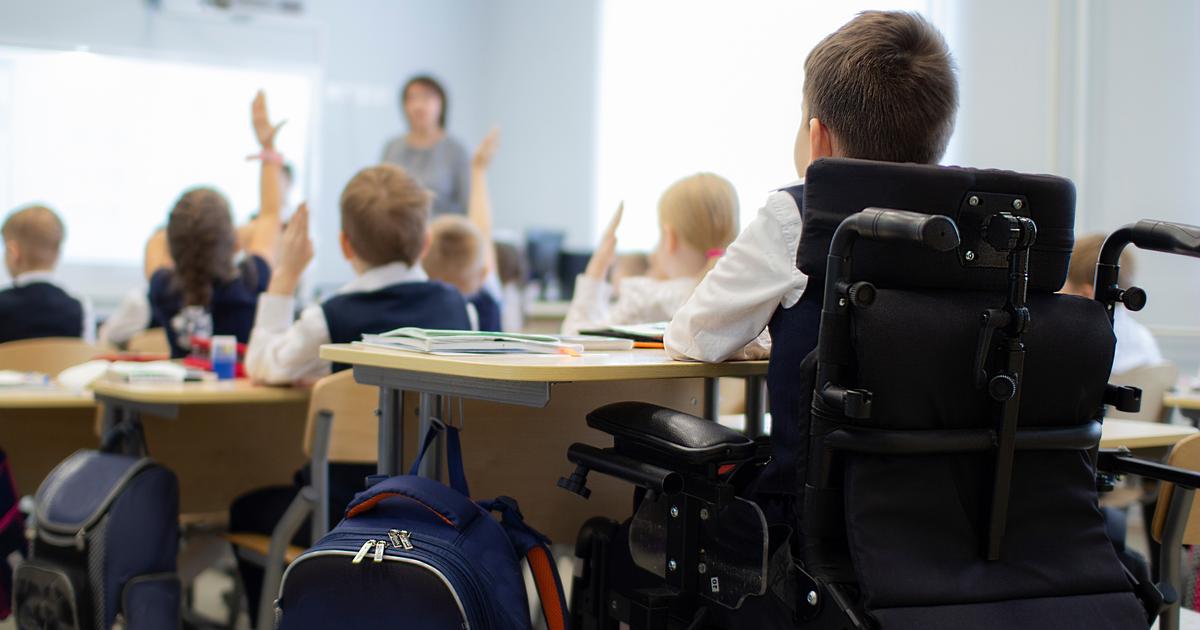Your School at Home (VECV) will close its Rouen college this summer. 16 students with disabilities will be out of school. 11 students on the waiting list and 14 primary school students will lose all hope of finding a place. The fault lies with a Kafkaesque bureaucracy which, by sheltering behind unsuitable rules, seems more concerned with masking its deficiencies than helping those who try to overcome them.
For 70 years, VECV, a private establishment under contract with National Education, secular, free, has educated children at home who are permanently prevented by disability or illness from joining a collective establishment. Qualified teachers go to the student's home to provide lessons, in accordance with official programs, and prepare them for national exams, while adapting the teaching to their state of health. Admission being based solely on medical criteria, all social backgrounds are represented - VECV currently has three students placed in a home under Child Social Assistance (ASE). The objective is always, when possible, to help the child to integrate into an “ordinary” path. Thomas, who suffers from a severe motor disability, was a student there from CE2 to the baccalaureate. He then pursued brilliant studies in preparatory classes then at the École normale supérieure and is today a teacher-researcher in mathematics. Noah, who is autistic, was enrolled in the Normandy branch of the large section until the sixth grade, after which he was able to join an ordinary college. He obtained his certificate last year with honors, and plans to work in the scientific police. Some children die before the end of their schooling: students until the last day, they will, at least, have received the consideration that our society owes to every child.
In 2006, 100,000 students with disabilities were educated in ordinary schools. There were 436,000 in 2022. This spectacular progression cannot hide a sometimes difficult reality on the ground. Families and teachers alike know it: the situations of these “special needs” children are disparate and often require – this is a tautology – individualized care. Inclusion is not normalization. And if, thanks to arrangements, many children can happily attend the school in their area, some, due to the very nature of their pathology, do not succeed, without however finding their place in a specialized device. For them, you have to invent. This is the raison d'être of VECV, which educates between 150 and 200 students each year, often referred by National Education or by medico-social structures, without being able, unfortunately, to satisfy all the needs: the lists of waits are long.
Let us remember all the same that having a sick or disabled child is not a choice, that registering them with VECV is not the result of a voluntary approach but rather of the deplorable absence of any other option.
For a long time, VECV only worked in the Paris region. In 2011, a primary school was opened in Rouen. It was put under contract in 2016. The opening of a college followed naturally in 2017. After five years of operation outside of a contract financed mainly by a private foundation, the college hoped in turn to go under contract, and thus obtain means of national education. The rectorate and the ministry refused it, on the grounds that an establishment which does not welcome students in dedicated premises and in a collective class cannot claim the status of an educational establishment. It is the very essence of VECV - recognized for the Parisian school, middle school and high school, and for the Rouen school - to teach at home to children who cannot travel. And, precisely for this reason, in the eyes of National Education, the Normandy VECV college is not a college. Understand who can.
Information obtained, it turns out that it is the law of August 2021
“reinforcing respect for the principles of the Republic”
which applies. This law, to fight against separatism, discourages “family education”. Of which act. The families of VECV students, whose children cannot find a place anywhere else in the education system, will appreciate it. Let us remember all the same that having a sick or disabled child is not a choice, that registering them with VECV is not the result of a voluntary approach but rather of the deplorable absence of any other option, and that Assimilating a medical orientation towards VECV to a form of separatism or to any ideology could make you laugh if it did not rather make you want to cry.
Without a contract with National Education, due to a lack of financial means to maintain its activity beyond next summer, the Normandy college is preparing to close, leaving a few dozen adolescents without schooling. A small number, certainly, compared to the hundreds of thousands of students mentioned above. The administration, as we know, does not like special cases. At the very least, she doesn't know how to deal with them. VECV falls under a general law which, if we think about it for a moment, does not concern it. A banal administrative aberration. The victims ? Disabled children. We are in France, in 2024.
Béatrice Descamps-Latscha, doctor of medicine, honorary research director at INSERM, former member of the National Consultative Ethics Committee, former president of VECV.
Yves Laszlo, professor at Paris-Saclay University, former scientific director at the École normale supérieure.
Corinne and Arnaud Lefebvre, parents of Noah.
Isabelle Mordant, mother of Thomas, member of the board of directors of VECV.
Yves Quéré, member of the Institute, president of VECV.
Isabelle Welcomme, former HR manager and consultant for the professional integration of disabled people, former president of VECV.

